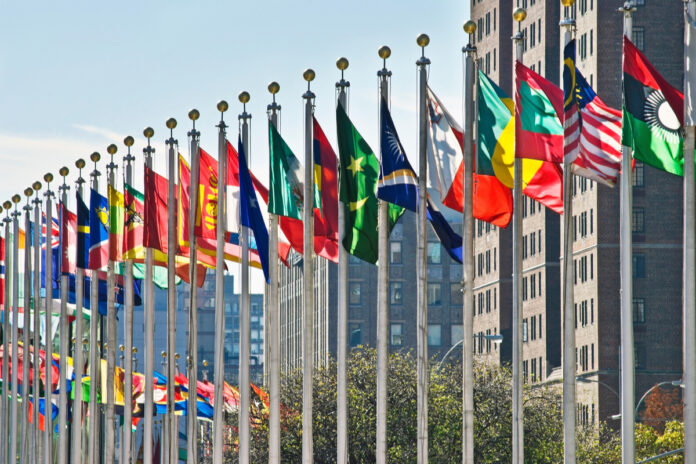VIENNA – The United Nations Commission on Narcotic Drugs, in accordance with 2019 recommendations from the World Health Organization, will remove cannabis from its strictest classifications of dangerous drugs. The international peacekeeping body announced the decision December 2.
“In January 2019, the World Health Organization (WHO) made a series of recommendations to change the scope of control of cannabis and cannabis-related substances,” an official statement from the commission noted. “After intensive considerations, the Commission took action today on these recommendations.”
WHO had classified cannabis, its psychoactive compound tetrahydrocannabinol (THC), and cannabis extracts as “dangerous drugs” since adoption of the Single Convention on Narcotic Drugs of 1961, as amended by the 1972 Protocol (Schedule I and IV: cannabis and cannabis resin; Schedule I: extracts and tinctures of cannabis). The action by the U.N. Commission on Narcotic Drugs removes cannabis from the stricter Schedule IV classification, but the plant and its compounds will remain listed on Schedule I.
The move could lessen international restrictions on cannabis, as well as open the door to increased cannabis research worldwide.
The fifty-three-member commission approved the action with a vote of 27-25, with one abstention. According to media reports, member nation Russia opposed the scheduling change, calling cannabis “the most abused substance in the world.”
Ethan Glick, the U.S. representative to U.N. Affairs at the U.S. Mission to International Organizations in Vienna, voted to approve the reclassification, with the U.S. citing scientific evidence of medicinal uses for cannabis but also recognizing potential “risks to public health.”
Glick also cited U.S. Food and Drug Administration approval of prescription seizure medication Epidiolex, a CBD-based formulation developed by GW Pharmaceuticals. Glick said continued research of medicinal benefits should continue.
The 2019 WHO recommendations also expressed cannabis formulations may be effective for treatment of several medical conditions including pain, nausea, anorexia, epilepsy, and multiple sclerosis.
A statement on the U.S. affirmative vote from the U.S. Mission to International Organizations in Vienna read, “The vote of the United States to remove cannabis and cannabis resin from Schedule IV of the Single Convention while retaining them in Schedule I is consistent with the science demonstrating that while a safe and effective cannabis-derived therapeutic has been developed, cannabis itself continues to pose significant risks to public health and should continue to be controlled under the international drug control conventions.”
An international coalition of cannabis advocacy groups commented on the decision in a public statement: “Today, the international community moves a step forward with this small victory on medicinal cannabis, but the decolonization and modernization of the U.N. drug treaty regime is only just beginning. The outcome of this review process has once again shown that the 1961 Single Convention is outdated and too blunt an instrument to fulfill its mandate of protecting the health and welfare of humankind.
“It also demonstrated the profound division and paralysis within the international drug control system. With few signs of reconciliation between the reform-minded countries and the defenders of the drug war status quo, reformers will continue to default to a way forward that doesn’t depend on a consensus in Vienna, as witnessed by national reforms currently underway around the world,” Director of the Drugs and Democracy Programme at the Transnational Institute Martin Jelsma said in a statement.
The vote on scheduling status was the primary issue on the day’s agenda, but the U.N. commission also addressed several other policy changes regarding cannabis and cannabis products and rejected other WHO recommendations.
Notably, a recommendation to reclassify cannabidiol, otherwise known as popular supplement CBD, and remove it from “international control” was rejected. CBD, which typically is extracted from hemp, contains only trace amounts of the psychoactive compound THC.
Glick voted against the resolution, saying CBD is not classified as a controlled substance in the United States and therefore does not require reclassification. The compound should not be subject to international control, he added.
The European Medicinal Cannabis Association protested the decision with a position paper titled “CBD is not a narcotic.”
The cannabis vote took place after lengthy consideration. The WHO recommendations were issued in January 2019, but the U.N. commission delayed its vote in order to give member states more time for review and to meet with hundreds of experts.











